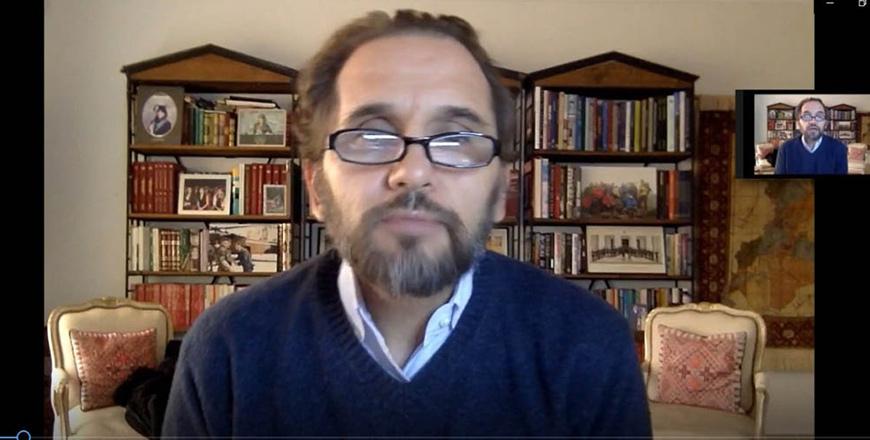- Local News
- Tue-2020-11-24 | 03:28 pm

Nayrouz News Agency :
Under the patronage of HH Prince Mired, president of the Higher Council for the Rights of Persons with Disabilities (HCD), an online conference was convened on Monday via Zoom on the Right to Family and Home for People with Disabilities.
The event is organised by the Ecumenical Disability Advocates Network (EDAN) Middle East, in partnership with the HCD, the Hashemite University and I Am a Human Society for Persons with Disabilities, according to a HCD statement.
The three-day virtual event will be attended by 600 participants, including people with disabilities and their representative organisations, experts and members of the academia and the media as well as specialists in the field.
The conference aims to shed light on the right to marriage and family life for people with disabilities, while opening perspectives for a better future within a welcoming community, irrespective of the socially constructed stereotypes, norms and customs related to marriage, family, parenthood, and the relationships preventing them from being part of such a community, such as the stigma and prevalent misconceptions preventing people with disabilities from exercising their full potential. This is especially the case as the right to form a family differs between males and females, with women with disabilities facing a triple discrimination — on the grounds of disability, gender and poverty, read the statement.
In his opening remarks, Prince Mired said: "Just as the Convention on the Rights of Persons with Disabilities (CRPD) stipulates that the right to form a family is an inherent right, so too is the right to have children and become parents. It is one of the rights which we must guarantee and uphold, never restricting the realisation of such a right on the basis of disability.”
Hashemite University President Fawaz Al Abd Al Haq Al Zboun stressed the importance of the role universities play in conducting specialised research on the patterns and family livelihoods of people with disabilities, and in securing the intellectual tools and the innovative methodologies that contribute to the formation of a human-centred inclusive society based on equal opportunities and justice for all.
All of this allows people with disabilities to form families within a cultural and intellectual environment that is supportive of their individual choices without contradiction or discrimination, he said.
After the opening ceremony, the first session titled "Article 23 of the Convention on the Rights of Persons with Disabilities (CRPD) and its correlation with the Marrakesh Treaty: The reality and challenges of national legislation in Jordan”, took place. During the session, HCD Secretary General Muhannad Al Azzeh spoke of the viewpoint of the CRPD in relation to the right to marriage and the formation of the family, Arab legislation and the right to marriage and reproductive health, and legal capacity, the right to choice and the right to marriage.
The conference, which will convene for three days, included numerous discussion and dialogue sessions, in which a number of experts, academicians and specialists in the field of disability rights took part, focusing on the following topics: Pre-marital relationship building for persons with disabilities and the relationship between the right to build a family, legal capacity and the right to self-determination.
This, alongside the right to family life from a religious perspective, the right to sex education and access to reproductive health services, as well as protection from psychosocial violence against persons with disabilities, particularly women and children with disabilities, along with the role of media, social media and assistive technology, were all issues deliberated by the participants.
The third day of the conference will include a workshop attended by experts and specialists in the field of the rights of people with disabilities from governmental, private sector and civil society organisations.
The workshop will build on the recommendations of the first two days of the conference, with the purpose of developing a framework for an action plan that supports the right of people with disabilities to form a family.
In the statement, the HCD highlighted that the Law on the Rights of Persons with Disabilities No. 20 for the Year 2017 includes stipulations and provisions guaranteeing the right to choose for people with disabilities, including the right to choose forming a family, as well as stipulations dealing with the right to access reproductive health services to realise equal opportunities for people with disabilities, whether as parents or sons or daughters.









